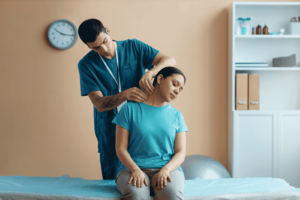As the saying goes, “Family is everything.” But what if a family member is dealing with substance abuse? This can be tough for everyone involved.
That’s why family-centered treatments for substance abuse are becoming more popular. These approaches focus not just on the person with the problem but also on the whole family. So, how can you navigate this kind of treatment and support your loved ones to enhance wellness?
It’s important to stay informed about the best ways to help your family. In this post, we’ll explore effective strategies for family-centered substance treatments. We will share tips on how to support and heal your family during this challenging time.
1. Psychoeducation
Psychoeducation is an important part of family-centered substance treatment. It helps individuals and their families understand how substance abuse affects the following:
- both the people struggling
- and the whole family
This approach provides information about addiction and the treatment process. It also guides the family members on how to support their loved one’s recovery. By learning more about addiction, families can develop the following:
- healthy coping strategies
- and create a supportive environment
Psychoeducation also improves communication and strengthens relationships. This is vital for long-term success in overcoming substance abuse.
2. Family Therapy
This type of therapy involves the entire family unit in the recovery process. This recognizes that the family plays a crucial role in the following:
- individual’s addiction
- and their journey toward recovery
At a family recovery center, therapists work with the family to identify and address underlying issues that may have contributed to the individual’s substance abuse. They also provide support and education for family members on how to best support their loved one’s recovery. By involving the family in the treatment process, individuals are more likely to have the following:
- successful
- and sustainable recovery
This collaborative approach promotes healing and strengthens family relationships, leading to a healthier and happier family unit.
3. Family Support Groups
These groups provide a safe and supportive environment for family members of those struggling with substance abuse to come together and do the following:
- share their experiences
- challenges
- and triumphs
The support and understanding from others who are going through similar situations can be incredibly impactful and comforting for the following:
- both the family
- and the individual seeking treatment
These groups also provide education on addiction and coping mechanisms. They also give resources for families to better support their loved ones in their recovery journey. By fostering a sense of community and shared responsibility, family support groups can play a vital role in the success of substance treatment for both the individual and their loved ones.
4. Aftercare Planning
One of the key ways to navigate a substance abuse treatment is by including aftercare planning as part of the treatment process. This ensures that individuals and their families have a solid plan in place to continue their recovery journey after leaving treatment. Aftercare planning can involve activities such as the following:
- ongoing therapy
- support groupsnhance wellness
- and relapse prevention strategies
By incorporating aftercare planning into the treatment approach, families can have a better chance of successfully maintaining recovery and preventing relapse.
Enhance Wellness and Recover With Family-Centered Substance Treatments
The family-centered approach to substance offers a holistic addiction recovery and an effective way to heal not just the individual struggling with addiction, but also their loved ones.
By implementing the ways outlined, we can enhance overall wellness and create a supportive environment for long-term recovery. Take the first step to enhance wellness and have a healthier and happier family.
Like this article? Read more about these topics on our blog.





Be First to Comment